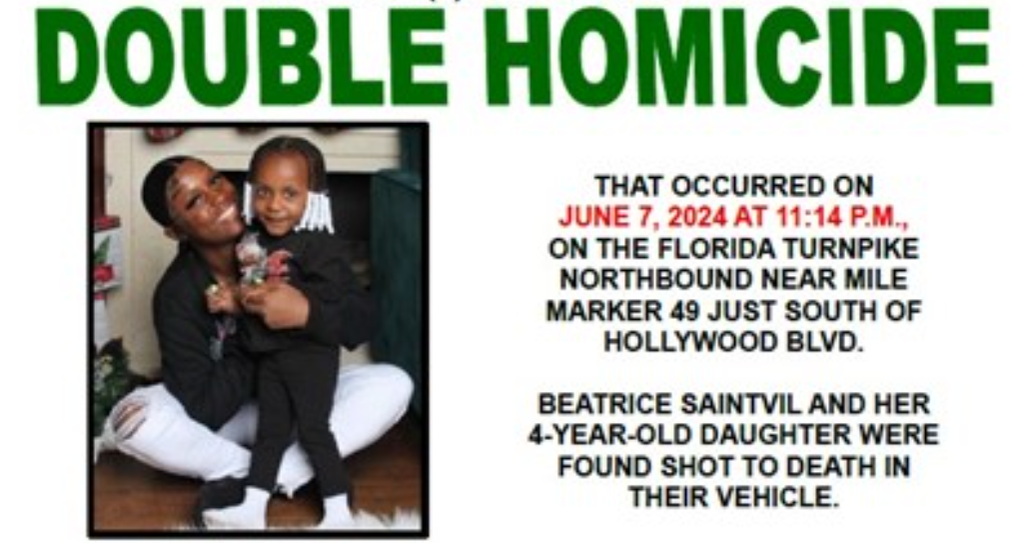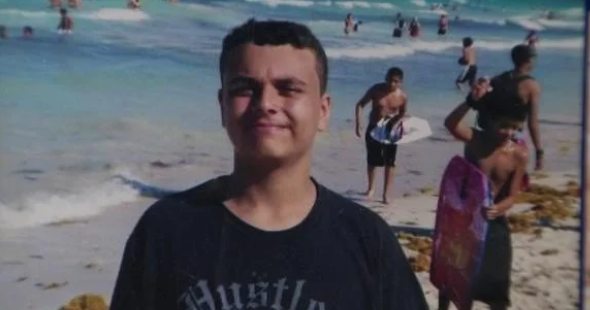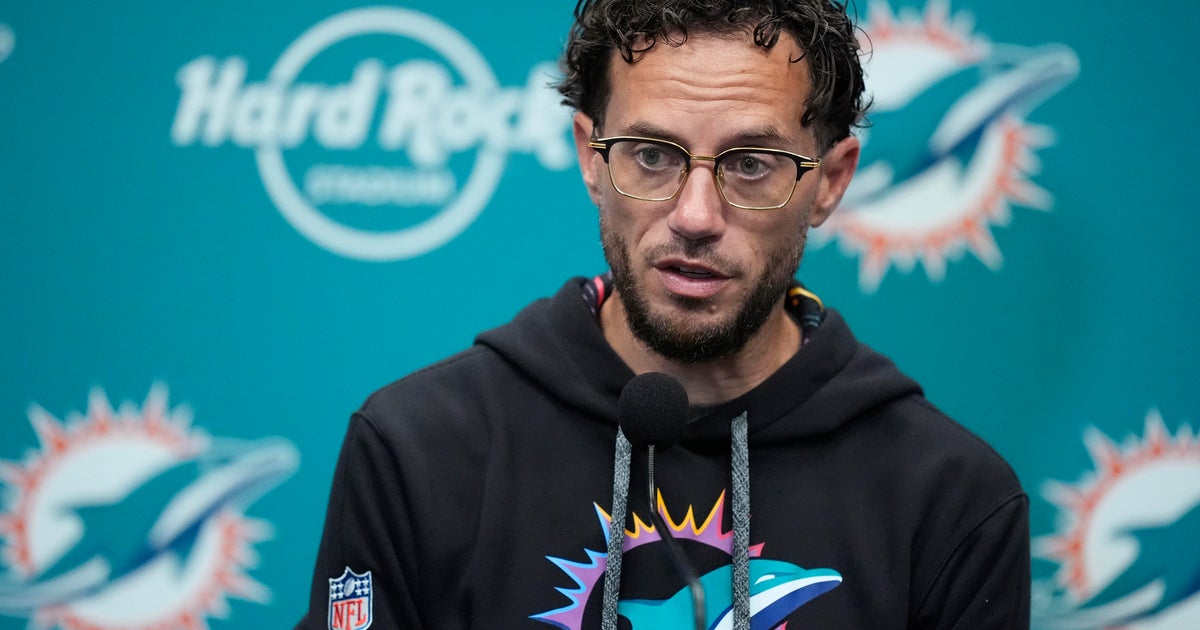A mother was forced to rob a bank to save her daughter's life after they were kidnapped and threatened with dynamite
"Are you gonna kill my mommy? Are you gonna kill me?"
Michelle Renee said those are the first words she heard from her 7-year-old daughter Breea after three masked gunmen broke down their door in San Diego County, California, on the night of Nov. 21, 2000.
Renee says she had lost sight of her daughter after the intruders threw them to the floor and bound them with duct tape. When she was finally able to look up, she saw Breea "face down, with a gun to her head."
The gunmen took their time explaining why they were there. They told her they had followed her for months.
"It was very much that mind control thing that they were doing, that, 'we know everything about you,'" Renee said, including the fact that she was a branch manager at a local bank.
Finally, the ringleader told Renee what they wanted.
"You're gonna rob the bank for us," she recalled them telling her. "Or you will die, your daughter will go first."
"48 Hours" contributor Tracy Smith takes us into this unusual case in "The Kidnapping of Michelle and Breea Renee."
Throughout the night, Renee said she heard the ringleader talking to a female voice on a walkie-talkie. The woman called him "Money One," and she was "Money Two."
The following morning, Renee, her roommate and Breea were strapped with dynamite. Renee said they told her they could detonate within a 10-mile radius if she made one false move. Breea would be placed in a closet while Renee drove to the bank —with the ringleader crouched in the back of her car. By the time the bank opened at 9 a.m., Renee walked out with a duffel bag filled with $360,000.
Once the gunman took off with the cash, Renee raced home, not sure what she'd find once she got there.
"I don't know if Breea's gonna be there," Renee recalled thinking. "I don't know if she's gonna be alive when I get there."
When she finally arrived the gunmen were gone, and Breea was still in the closet where Renee had left her.
The ringleader had forgotten to remove the dynamite from Renee's back. After examining it, the bomb squad discovered it was fake. Tom Manning, a prosecutor in the San Diego County District Attorney's Office, told "48 Hours" that it was just two broomstick handles that had been cut up, painted and taped together to look like dynamite.
During the 14-hour hostage situation, Renee had recognized the ringleader's eyes because he had posed as a customer at the bank earlier that day, and he had left behind a business card before a female companion had whisked him away.
"My brain was going, 'Oh my gosh, don't let him know that you know,'" Renee said.
The lead would help investigators crack the case.
"Through that card, they started the investigation," Renee said.
The business card contained the suspect's real name, Christopher Butler. The FBI soon discovered Butler was a convicted felon with a history of robbing banks. Through surveillance, they found Butler living in a house with his fiancée Lisa Ramirez, the same woman who had come with him to the bank. When Butler and Ramirez were arrested 10 days later at a traffic stop, investigators found physical evidence tying them to the crime, including a BB gun that matched one of the guns Renee had described, the ski masks with cutout eye holes, Renee's credit cards, and the money straps from the bank.
At the house, investigators found "all the ingredients to make the fake bomb," Manning said, like cut-up pieces of a broom handle that had been painted, and cans of red spray paint, including one with Ramirez's fingerprint on it. Butler's fingerprint would later be found on the fake dynamite itself.
"It was crazy, I've never seen that much physical evidence left at a crime scene," Manning said.
Butler denied everything to police and tried to protect Ramirez. But during her interview, Ramirez admitted to authorities she was involved in the plot, and that she was the female voice on the walkie-talkie. She even took credit for the idea to use fake dynamite and kidnap the bank manager. She also told detectives the money had been split three ways among the suspects, but that both her share and Butler's had been stolen. But during that interview, Ramirez also falsely claimed that Renee had been in on it.
"We walked out of that thinking, 'OK, Lisa's the mastermind behind all of this. And, is it possible Michelle's involved?'" Manning said.
But ultimately, Manning said, he knew Renee was innocent.
"The first time I interviewed her, she had Breea with her," Manning said. "And...I saw that bond and relationship. And when she left, I went, 'she's not involved in this.'"
There was also all the evidence to corroborate Renee's account. The other two suspects, Christopher Huggins and Robert Ortiz, had given full confessions, neither implicating her.
In June 2002, Butler and Ramirez would be tried together in the first of two trials.
"There was so much evidence, there was no way I thought that this trial was gonna be anything but… a slam dunk," Renee said.
Manning said the DA's office was confident that Ramirez's key statements about her involvement would be allowed into evidence.
Even Ramirez's attorney Herb Weston admitted that it didn't look good for his client — she had confessed on camera. Weston told Smith he thought Ramirez was guilty when he first got the case, and offered the prosecution a plea deal, which they rejected.
"If they play that tape, saying that she wasn't involved would've been difficult," Weston told Smith.
But to everyone's surprise, and Weston's delight, since Ramirez's statements also implicated her co-defendant Butler, the judge ruled the entire interview inadmissible.
"We can now argue that she's not involved," Weston explained.
Without Ramirez' statement, the case against her relied heavily on Renee's testimony. In court, the defense would attack her credibility, and even suggest she was complicit in the bank robbery.
"I was treated like I was the criminal," Renee said.
Manning remembers that "it got very confrontational."
Weston told "48 Hours" his strategy was to "beat the hell out of the victim and point out all the inconsistencies the victim is saying."
He implied Renee was lying about recognizing Ramirez's voice on the walkie-talkie the night she was held hostage, pointing out that it wasn't in any of the FBI reports. But Renee insists she told them, and Manning argued Renee did identify Ramirez's voice before she took the stand. But Weston argued that even though his client had admitted the voice was hers, the jury didn't know that.
"That's not the point," Weston said. "For me, it was a great opening to attack [Renee's] credibility."
Weston said it was suspicious that Renee hadn't taken the bait money — traceable bills banks keep in the vault to trap bank robbers. Renee explained, however, that she was not going to take the chance that she could get her daughter killed, especially since the gunmen had instructed her "no funny money," she said.
Maybe worst of all for Renee, Weston cast doubt on her maternal instincts, questioning why she would go back to the house, knowing she was strapped with dynamite that could possibly explode. But Manning said Renee's actions made complete sense, given the stress and the pressure Renee was under to pull off a bank robbery to save her daughter's life.
While Weston hammered on every decision Renee made that day, Butler's attorney picked apart her financial history, and even asked her about her sex life.
"They were trying to paint me as somebody that was irresponsible," Renee said.
"A selfish, terrible mother...that...would do anything for money," she added.
According to Manning "the defense was to make her a culprit."
After Renee's three grueling days of direct testimony and cross-examination, Butler took the stand. He continued to protect Ramirez as he had in his police interview, but now he told a new, elaborate story, one in which Renee masterminded the bank robbery. And he claimed the two of them had previously had an affair. He said they had met at a grocery store, and that Renee had recruited him for the bank robbery.
Manning admitted it was jaw-dropping testimony, but contended it was all a lie and that the defense didn't present any evidence to corroborate Butler's claims.
"If any of this were true, he would've thrown Michelle down in a heartbeat in his [police] interview," Manning said.
But despite the outlandish story, it would seem the defense had done what they set out to do. After deliberating for five days, the jury found Butler guilty of the robbery and kidnapping of Breea and their roommate, but hung 9-3 on the charges involving Renee's kidnapping.
Manning said one of the jurors had completely believed Butler's story, while the other two were unsure. Butler would still receive multiple life sentences for all the other charges, but Ramirez would walk away a free woman. The jury found her not guilty on all counts.
"Mind boggling" Renee said. "The fact it was her idea to do this to a mother and a child and laughing and proud of it."
"It was the best verdict I ever got in my life," Weston said.
Even though the other two suspects would be easily convicted at their trial a few months later, Renee said she felt revictimized by the defense's tactics.
"Is it fair to beat up on the victim?" Smith asked Weston.
"Oh absolutely, absolutely," Weston replied.
Manning said the jury got it wrong on Ramirez. He believed she was "very involved...The investigators kept saying...she was the brains of the outfit."
It would take two decades, but the truth would eventually come from an unlikely source.
In January 2020, when Christopher Butler became eligible for parole under California sentencing laws, Manning saw an opportunity to ask him about the story he'd told on the stand. Butler recanted his entire testimony, admitting he and Renee never had a relationship.
"It's about time," Renee said. "There was never, ever a chance...that I would...have been involved in anything like this."
Butler was denied parole, but Renee was free.
"In a weird...way, I could breathe...I could exhale, finally, after all these years," she said.








